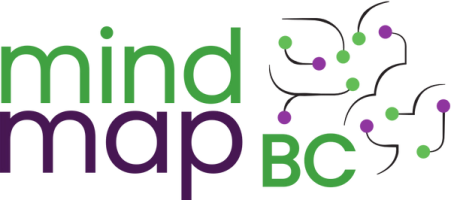Summary
Therapy Cove Co. is based in Vancouver, British Columbia. We wish to inspire, motivate, and improve the lives of those desiring to cultivate rewarding change.
We strive to help raise individual’s emotional, spiritual, mental, and physical levels of well-being by emphasizing positive wellness practices.
Your therapist, Amrita Sandhu is a clinical counsellor who is excited to help support you through your journey of self-discovery and healing. Amrita is a local author, and social advocate for issues that plague the local community such as racism, stereotyping, and marginalization. Through compassionate, non-judgemental therapeutic service, Amrita applies a holistic approach which combines traditional talk therapy methods with modern mindfulness-based techniques to allow for an organic unravelling of growth.
Amrita specializes in assisting the process of trauma release, identity discovery, and strengthening the mind-body connection.
We truly believe in helping individuals step into their best, unabridged life by providing therapy defined by solution, truth, and successful outcomes.
Want to learn more about this service’s work with Two-Spirit, trans, LGBQ+ people?
We invite all service providers listed on MindMapBC to answer the following questions. These questions were developed in collaboration with community members, researchers, and mental health and other service providers. They're intended to help us understand what a service provider or organization is doing to affirm and support sexual and gender diverse service users.
See below for responses for this listing.
Want to learn more about our screening questions and filters?
Do you collect and use preferred names (rather than legal names) for all communications?
—Yes
Are the forms used in your practice inclusive of various sexual orientations and gender identities (e.g., opportunities to fill in pronouns, etc.)?
—Yes, to some extent
I leave these items as optional to fill out and do not make them required to be filled out
Do you and your colleagues ask about pronouns and use them appropriately?
—Yes
Are you and your colleagues aware of what specific barriers may exist for trans individuals accessing your services?
—Yes
Are you and your colleagues aware of what specific barriers may exist for Two-Spirit individuals accessing your services?
—Yes
Do you offer Indigenous 2S/LGBTQ+ specific resources, for example Indigenous Elders or Knowledge Keepers?
—No
Are you and your colleagues comfortable asking relevant questions about gender identity and sexual orientation?
—Yes
Are you and your colleagues aware of what specific barriers may exist for LGBQ individuals accessing your services?
—Yes
Can you and your colleagues distinguish gender/identity dysphoria/distress from mental health conditions?
—Yes
Does your practice have gender-neutral washrooms?
—No
Virtual practice
Are there clear anti-discrimination policies that include gender identity, gender expression, and sexual orientation in your organization or practice?
—Yes
Are all individuals involved in service provision actively engaged in decolonizing their practices and/or organization? If yes, please type below what actions you and/or your organization are taking.
—Yes
I have worked in a program called Multicultural Family Preservation program at a non-profit organization in which counselling services were made available to family's of an ethnic minority origin where there were child protection concerns. This is where I learned the importance of adopting culturally sensitive language for therapeutic practice, as well as adopting some models and techniques (i.e. joint family living systems being the norm, differences in parenting styles, etc). I have also been passionate about this topic through personal endeavours that has seeped into my practice as seen within my fiction novel that entails a lot of themes of racism, prejudice, homophobia and how this can be detrimental to individuals lives and well-being. My social media pages, my interactions with my clients, me as a person - I feel all actively engage in decolonizing my practice just by being a living breathing example of how growth can occur when you combat biases and assumptions and create a more inclusive space of healing.
Are all individuals involved in service provision actively engaged in anti-racist practices, policies, and systems in their care model?
—Yes
Last updated: January 19, 2022
Request changes —

